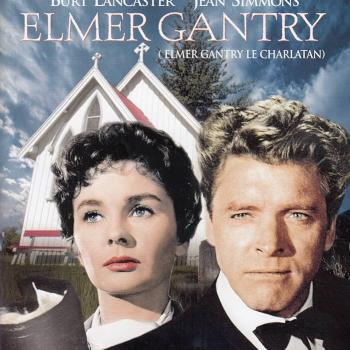"Freedom has no compromise. By its definition, it is absolute." So states General Enrique Gorostieta in the new film For Greater Glory.
The movie centers on the Mexican government's war on the Catholic Church in the early 20th century. The Oscar-nominated Andy Garcia plays General Gorostieta, a renowned military leader who—despite his atheism—agrees to lead the fight for religious freedom. In a recent roundtable interview held to promote the film, Garcia discussed the reasons he made the film, the parallels to his own life, and why it's important for people to fight to protect their freedoms from an overeager government.
As the film begins, the General is a man without faith. Although his wife (Eva Longoria) is raising their children to be Catholic, he is wary of the Church. Even when he learns that the government has forbidden the ringing of the Church bells and proclaimed that laws against religious services will be harshly enforced, he shrugs off the controversy.
But as the story continues, the General grudgingly consents to lead a disorganized army that fights against the government's overreach. And although he's no fan of the Church, Gorostieta decides that religious freedom is a cause worth fighting—and dying—for.
Garcia noted in the interview that, although he "is a man of faith," he didn't make the movie just because of his own religious values. He decided to make it because of the power of the story itself. It's "an important story to tell. That's why I did it."
The story is important, Garcia noted, not merely for Mexico. It's "a story for the world," for believers and non-believers alike. "You don't have to be a man of faith or a Catholic for that matter to be in this movie. Nor do you have to be one to see this movie."
While the movie is about more than religion, faith and the significance of religious freedom play a big part. But beyond that, For Greater Glory is about a government infringing on its citizens' most sacred rights—an issue close to Garcia's own heart. The actor, whose family left Cuba shortly after Fidel Castro took power, was quick to note the parallels. "I come from a country where religious freedom for many years was completely taken away . . . Absolute freedom was taken away from the Cuban people, and still is."
And although the freedoms curtailed in this movie are religious, Garcia noted that abridging such freedoms is sometimes a precursor to other freedoms being taken away. Garcia argued that such a denial of a basic right—if left unchecked—might have foreshadowed more government crackdowns. "In this case," he said that the denial of freedom in Mexico "manifested itself in the fight for religious freedom but if that would have been successful, what was the next freedom they would've taken away?"
Although it's often hard to understand how vital our nation's basic freedoms are, For Greater Glory serves as a reminder that such freedoms can be taken away by an overzealous government. It took years, even decades, for some of the most basic religious freedoms to be restored in Mexico. And even after those freedoms were restored, the government suppressed the story of the Cristeros war in which ordinary Catholics rose up in defense of their freedom of worship.
Eventually, the freedoms were restored and the Church bells rang once again. Gorostieta became a hero to the faithful in Mexico for his defense of their faith's freedom. As Gorostieta noted in the film, "freedom has no compromise." It's a lesson Garcia knows all too well.
12/2/2022 9:05:59 PM




